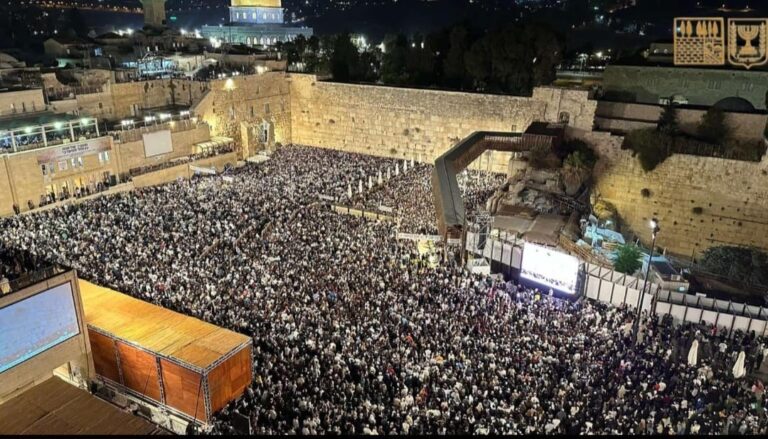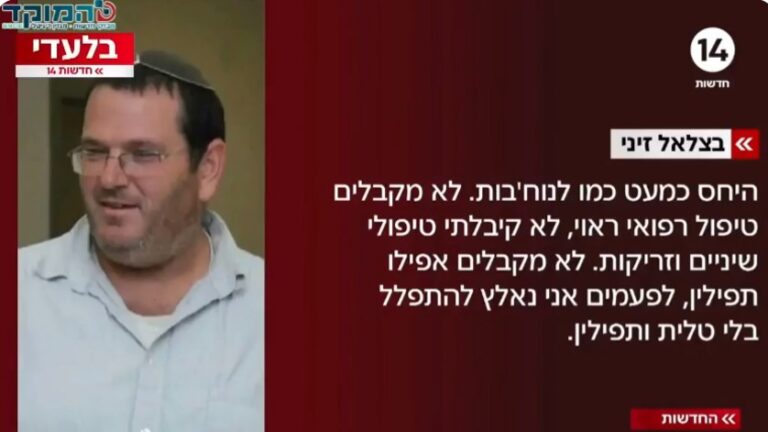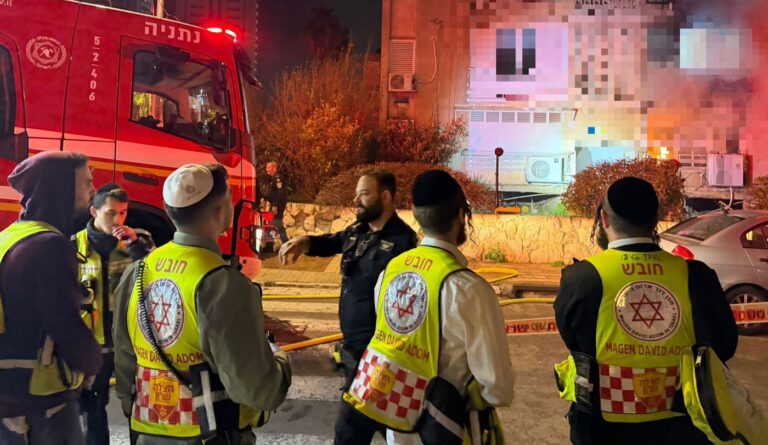Vayomer Hashem el Moshe dabeir el Aharon achicha v’al yavo b’chol eis el haKodesh (16:2)
Rav Yonason Eibeshutz was once collecting tzedakah for a poverty-stricken family. He approached one of the wealthy men in his town for a donation. The man attempted to excuse himself by quoting the Gemora in Kesuvos (50a), which discusses the verse in Tehillim (106:3) Ashrei shomrei mishpat oseh tzedaka b’chol eis – Praised are those who guard justice and do acts of righteousness at every moment. The Gemora questions how it is possible to do tzedakah every second, and answers that the verse is referring to a person who sustains his own young children.
The man claimed that he had no need to contribute to the Rav’s cause, as through his children, he was already considered by the Gemora as somebody who gives tzeddakah “B’chol eis” – at every moment. To this argument, the quick Rav Yonason sharply responded by quoting our verse and explaining, “V’al yavo b’chol eis el HaKodesh” – A person who only gives tzedakah based on the Gemora’s interpretation of the words “B’chol eis” won’t be permitted to enter into Holy places!
Ki bayom hazeh y’chaper aleichem l’taheir eschem (16:30)
The Gemora in Kesuvos (103b) relates that when Rebbi Yehuda HaNasi passed away, a piece of paper fell from Heaven. On the paper was written that all who were present at the time of his death would merit a share in the World to Come. Although Rebbi’s level of holiness and spirituality was tremendous, why don’t we find similar episodes in conjunction with the deaths of other righteous individuals?
Rav Yitzchok Elchonon Spektor answers that the Gemora in Yoma (85b) records a dispute between Rebbi and the other Sages with respect to the atonement effected by Yom Kippur. The Sages maintain that Yom Kippur is only effective together with confession and repentance for one’s misdeeds, but Rebbi maintains that the Holiness of the day intrinsically causes atonement and forgiveness for all. It is also known that the death of the righteous is compared to Yom Kippur in its ability to effect atonement (Gur Aryeh Bamidbar 20:1). Although the law is decided in accordance with the majority of the Sages, in deference to the honor of Rebbi his death was treated in accordance with his opinion, and all who were present received forgiveness, even if they didn’t repent!
V’haysa zos lachem l’chukas olam l’chaper al B’nei Yisroel mikol chatosam achas ba’shana (16:34)
Before the beginning of the Neilah prayers on Yom Kippur in 1959, Rav Eliyahu Lopian rose to address those gathered to pray in his yeshiva in Kfar Chassidim in Israel. With tremendous emotion and a steady flow of tears, he commented that some righteous people are able with their deaths to atone for their entire families, others for their entire cities, and there are a few unique individuals in the world with the capacity to effect atonement for the entire generation through their deaths (Gur Aryeh Bamidbar 20:1).
With this introduction, Rav Lopian cryptically continued, “We may understand why our verse mentions that Yom Kippur shall occur once annually, something which should be obvious and isn’t explicitly written in reference to any of the other Yomim Tovim. If the generation is lax and immoral, Hashem will have no choice but to take the righteous, whose death atones like Yom Kippur, throughout the year in order to bring them forgiveness. The Torah therefore emphasizes that the decree is that there should be only one Yom Kippur each year, and we pray for no more.”
Those in attendance had difficulty understanding Rav Lopian’s intentions until they heard at the end of Yom Kippur that just after Kol Nidrei on the evening before, the great Brisker Rav had passed away. His son Rav Berel Soloveitchik related that a few days earlier, the Brisker Rav had cryptically commented, “This year there will be two consecutive days of Yom Kippur, one beginning just as the other ends,” the intent of which was tragically clarified a few days later!
Ish ish el kol she’er besaro lo sikrevu l’galos ervah ani Hashem (18:6)
The Seforno notes that marriage to one’s closer relatives would actually seem to be ideal. Their shared values, backgrounds, and personalities should combine to produce wonderful children. As evidence for this claim, he cites Amram, who married his aunt Yocheved (which was permissible prior to the giving of the Torah). From this close relationship were born Moshe, Aharon, and Miriam, the greatest leaders a generation of Jews ever enjoyed. If so, what could be the problem with such relationships, and why does the Torah prohibit a person from marrying his close relatives?
The Seforno writes that this would indeed be the case if the intentions of the couple were solely for noble purposes. Unfortunately, human nature makes this scenario incredibly rare. Along with the Rambam and the Ibn Ezra, the Seforno explains that Hashem ideally prefers that people be completely focused on and dedicated to serving him. Because we are human, He had no choice but to permit marital relations. However, in an effort to minimize them, the Torah forbids relations with all of a person’s close relatives. Because he is so frequently surrounded by them, the regular contact could easily lead to constant involvement in our base human desires. As this would distract us from focusing on elevating ourselves and achieving our true spiritual purposes, the Torah therefore prohibited these relationships.
The Ramban questions this explanation. He points out that a man is Biblically permitted to marry as many wives as he wants, something which should clearly be forbidden if the Torah’s goal was to minimize his involvement in marital relations in order to free him to pursue spiritual endeavors. He argues that it is illogical that marrying one’s daughter or sister should be punished so severely when somebody else may marry 1000 wives with impunity. As a result, the Ramban suggests that the entire concept of the forbidden relationships falls into the category known as çå÷éí, mitzvos which seem to defy human logic and which we perform only because Hashem commanded us to do so, even though we are unable to understand the rationale behind them.
Answers to the weekly Points to Ponder are now available!
To receive the full version with answers email the author at [email protected].
Parsha Points to Ponder (and sources which discuss them):
1) What should a person do if he knows with certainty that he did not commit one of the sins mentioned in the text of the Viduy that is said on Yom Kippur? (Toldos Adam 1:10)
2) How is it possible that somebody became Biblically impure and was able to become pure without having to wait for sunset? (Ibn Ezra and Ayeles HaShachar 16:26)
3) Almost all of the forbidden relationships are bi-directional, in that they apply both to older generations and to younger generations. For example, just as one is prohibited to have relations with his mother or mother-in-law, he is also forbidden to have relations with his daughter or daughter-in-law. One notable exception is that a person is forbidden to have relations with his aunt (18:12-14), yet it is permissible to marry one’s niece. Why is this prohibition different than all of the others in this regard? (Peirush HaRosh, Seforno 18:6)
4) The Torah commands (18:18), “Do not marry a woman in addition to her sister.” Given that the prohibition isn’t the initial marriage to a woman but rather the subsequent marriage to her sister, wouldn’t it be more appropriate to reverse the wording and to forbid “marrying a sister in addition to your wife?” (Gur Aryeh, Chanukas HaTorah)
© 2011 by Oizer Alport.










